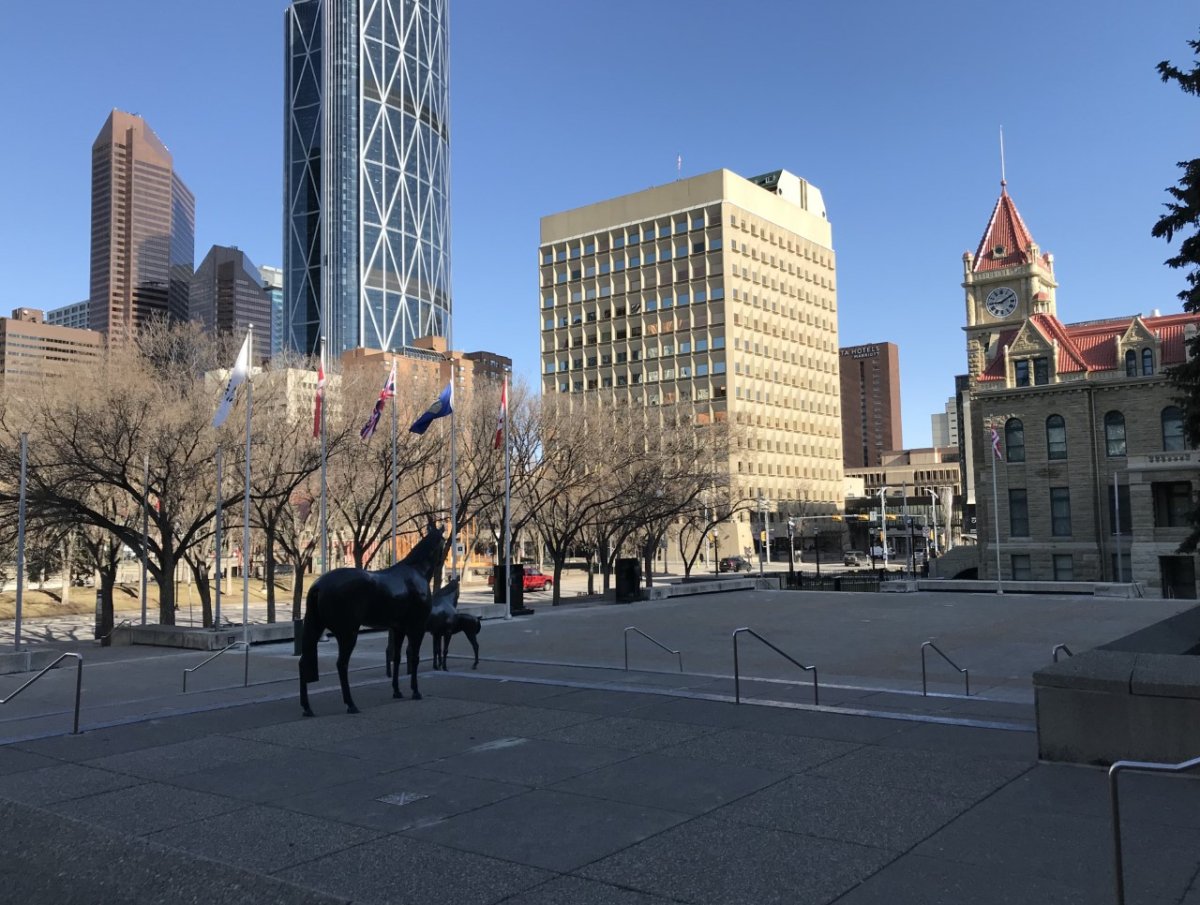The City of Calgary is running out of time to be able to keep zero tax increases while maintaining the same levels of service.

CFO Carla Male told the city’s priorities and finance committee that administration has been trying to balance providing services to Calgarians over the past two years while also stimulating the local economy in a “fiscally sustainable manner.”
“In recent years, this balance has focused on achieving savings and a competitive tax rate. But the need for future investments and to keep pace with population growth, and service expectations is growing,” Male said.
“With the significant changes our city is experiencing, we will make every effort to limit the strain on Calgarians by working towards a zero per cent change to the property tax rates in 2022.”
Before the COVID-19 pandemic, Calgary city council approved a zero increase for 2020 and a 1.66 per cent decrease for 2021. By comparison, Edmonton had a 1.3 per cent increase in 2020 and zero increase the following year. Vancouver saw seven and five per cent increases in the past two years, respectively.
- Calgary riders train for world BMX championships: ‘Pretty cool feeling’
- Here are Alberta’s most popular baby names of 2023
- Former Calgary mayor Naheed Nenshi expected to be focus of first Alberta NDP leadership debate
- Alberta to appeal judge’s ruling ordering release of documents on Rocky Mountain coal mining
A City of Calgary slide presented on May 18, 2021, shows how Calgary compares with other Canadian cities with property tax rate increases.
“Vancouver is the only city that has increased the tax rate year-over-year since 2019,” Male said. “This was done to make investments in services such as fire and rescue, police, libraries, community centers, homelessness and housing, while reducing or delaying in other areas.”
In an update on the city’s planning for the 2022 budget year on Tuesday morning, Male said the city will need to make up a $60-million gap in order to keep property tax increases flat. The city’s chief financial officer said the city’s ongoing Solutions for Achieving Value and Excellence (SAVE) program should be able to fill that hole.
The more than $16 billion lost in downtown property values — and concurrent drop in tax revenues — make downtown a place the city can no longer rely on for tax revenues, even with service demands increasing.

“Despite these financial constraints there are also public expectations that the city should play a leading role in supporting and investing Calgary’s economic recovery,” Male said.
The latest citizen satisfaction survey showed an increasing trend in citizens being more in favour of increasing taxes to maintain or expand services and a decreasing trend in Calgarians wanting to cut services — trends that started in spring 2019.
Male said the post-pandemic recovery in GDP and total employment is expected to be complete by the end of 2022, and she said the Bank of Canada is expected to keep its overnight rate low until late 2022.
But downtown office vacancy rates aren’t expected to dip below 24 per cent until 2024, according to a forecast from Altus Insite and the city economists.
Through 2020, one-third of the city’s services were experiencing increased demand, while half of the city’s service areas were stuck at 2018 funding levels.
Inflationary pressures are expected to re-emerge, as well as increased population growth. Changes in global energy markets are also expected to stress city finances.
Male said there’s a tension between service demands and “the desire for savings and tax rate freezes.”
The city’s CFO warned against making the city’s budget too lean so as to reduce the ability to recover or even “leap at opportunity,” saying the city requires a degree of nimbleness.
“Further (budget) reductions risk not being able to seize opportunities.”
Mayor Naheed Nenshi said the goal of zero tax increases was just that — a goal set before the pandemic.
“They were always meant to be aspirational targets, and the city should not be tying themselves to those targets so heavily that services are being hurt.”

He also warned against repeating zero increases for too many subsequent years.
“At some point — and I think that point is now — we will actually be impacting the services that people receive in a significant way,” Nenshi said.
“I’m obviously not in that place where I say let’s start cutting services; quality of life matters, and we have to actually pay people fairly and decently, and we have to be able to provide services that have people wanting to live here.”
With a municipal election due before November’s budget deliberations, Calgary’s outgoing mayor had a warning for the next city council.
“You can’t have zero forever and there has to be a point where we have to strive to keep up with inflation,” Nenshi said. “For council, the question is do you want to stay at zero for a long time and then suddenly have a 10 per cent increase because you just can’t do it anymore, or do you want to be more reasonable in your increases that are closer to the inflation rates?”










Comments